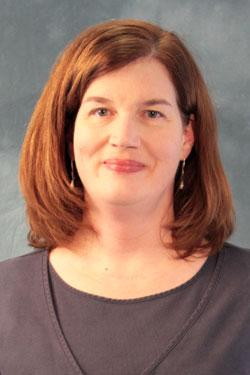SOP Hosts World-Renowned Researchers During CERSI-Sponsored Conferences
New developments in pharmaceutical manufacturing and topical drug bioequivalence and bioavailability addressed in two day-long workshops.

By Malissa Carroll
June 4, 2013
On May 21 and 23, the University of Maryland School of Pharmacy hosted two conferences co-sponsored by the Center of Excellence in Regulatory Science and Innovation (CERSI) and the American Association of Pharmaceutical Scientists that spotlighted new developments in the fields of pharmaceutical manufacturing and topical drug bioequivalence and bioavailability. These events featured presentations from world-renowned experts in these fields.
“The School of Pharmacy’s collaboration with the Center of Excellence in Regulatory Science and Innovation to host these events underscores its mission to lead pharmacy education, scientific discovery, patient care, and community engagement in the state of Maryland and beyond,” says Andrew Coop, PhD, professor and chair of the Department of Pharmaceutical Sciences (PSC). “Both conferences offered a collegial, open forum that allowed the world’s leading researchers, regulators, and industry professionals to learn from one another and work towards developing new tools, standards, and approaches in the fields of pharmaceutical manufacturing and topical drug bioequivalence and bioavailability.”
Organized by Audra Stinchcomb, PhD, professor in PSC at the School of Pharmacy, the All-Inclusive Topical Drug Bioequivalence and Bioavailability Summit was the first conference in this series. It was held on May 21, and addressed methods for evaluating topical drug bioavailability and bioequivalence, and provided a follow-up discussion on the results from the Product Quality Research Institute (PQRI) workshop held at the US Pharmacopeia Meeting Center in Rockville, Md., on March 11-13.
“This conference brought world-class researchers representing academia, government, and industry together to discuss the advances that have been made in the field of dermal drug delivery,” says Stinchcomb. “We reviewed the results of the latest PQRI workshop and built upon those findings by offering new perspectives and potential methods to evaluate topical drug bioequivalence and bioavailability.”
This conference featured two panel discussions. Its speakers included Ethan Stier, RPh, PhD, pharmacologist and deputy director of the Division of Bioequivalence II in the Office of Generic Drugs at the FDA; Ken Miller, PhD, senior vice president of research and development at IGI Laboratories in Buena, NJ; Richard H. Guy, PhD, professor of pharmaceutical sciences at the University of Bath, who also delivered a presentation to students in the PSC Graduate Program earlier that week; Ken Walter, PhD, chief executive officer of An-eX in Taunton, UK; and Thomas J. Franz, MD, an independent consultant and inventor of the Franz diffusion cell.
Control Strategies for Pharmaceutical Manufacturing: Real Time Release Testing and Design Space Determination was the second conference in this series. It was held on May 23, and organized by Stephen Hoag, PhD, professor in PSC and director of the School’s Good Manufacturing Practice (GMP) Facility. It brought speakers from academia, government, and industry together to learn about the latest advances in Real Time Release Testing (RTRT) and to share their experiences with implementing RTRT systems.
“The goal of this conference was to look at the development of a manufacturing control strategy from a regulatory and industrial implementation perspective,” says Hoag. “We wanted attendees to examine the issues associated with the manufacture of pharmaceutical products, particularly methods for developing a manufacturing control strategy, and identify the steps that are needed to develop a RTRT system using process analytical technologies.”
Speakers for this event included Christine Moore, PhD, acting director of the Office of New Drug Quality Assessment at the FDA; Raafat Fahmy, PhD, science advisor at the FDA; Gregg Claycamp, PhD, senior scientist for risk analysis and decision analysis at the FDA; Christian Airiau, PhD, chemometrician and manager from GlaxoSmithKline; Gert Thurau, PhD, director of process analytical technology at Merck; and Hoag.
“Both events were a tremendous success, demonstrating the great partnership that exists between the University of Maryland, Baltimore, the University of Maryland, College Park, and the FDA in the Center of Excellence in Regulatory Science and Innovation,” says James Polli, PhD, professor in PSC and co-principal investigator at CERSI. “We hope to be able to offer similar events in the future.”



